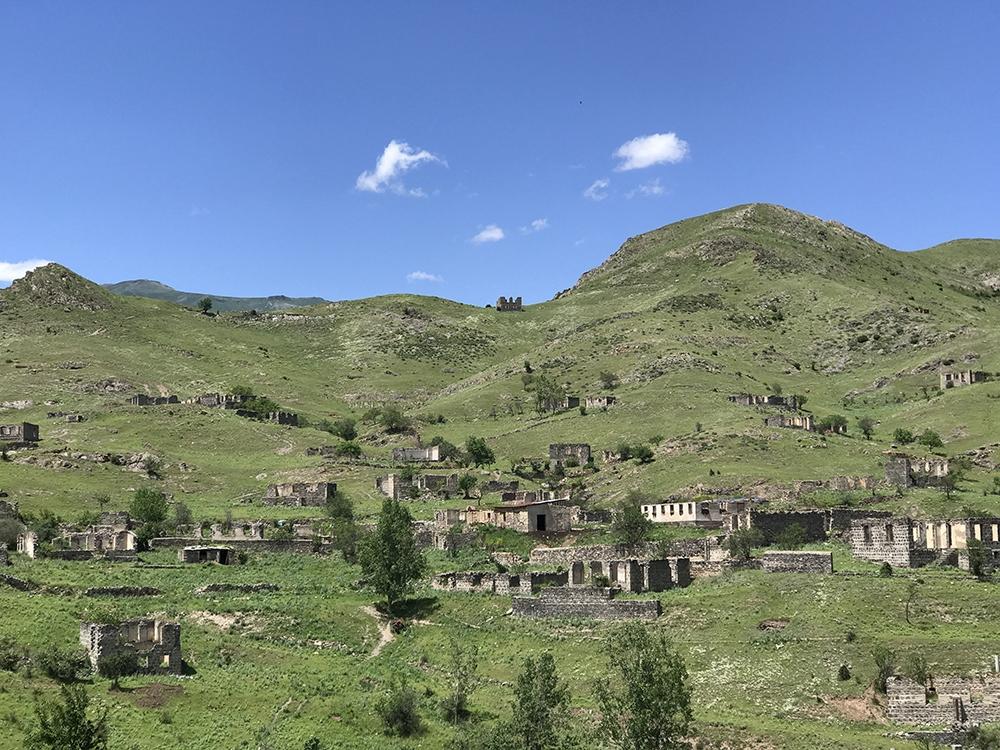International Crisis Group: Illegal settlements in Karabakh undermine negotiations

By Abdul Kerimkhanov
The International Crisis Group (ICG) has said that illegal settlements in Nagorno-Karabakh and adjacent seven regions of Azerbaijan occupied by Armenia complicate negotiations between Baku and Yerevan.
"As things stand, new settlements strengthen the belief among settlers and Armenian nationalists that no territory can be given up. By turning a blind eye to them, Yerevan sets the stage for the problem to grow and complicate any eventual discussions. Building new settlements also risks making the situation on the ground even more unmanageable as existing ones are plagued by poverty, dilapidated housing and shoddy infrastructure," the ICG's said in its report released on December 20.
As was mentioned, Baku’s protests and the OSCE Minsk Group’s appeals have not constrained the settlements’ growth and today, about 17,000 ethnic Armenians live in the territories between Armenia and occupied Nagorno-Karabakh.
ICG noted that in October 2017, so-called head of illegal regime created in occupied Azerbaijani territories Bako Sahakyan identified expanding the settlement of the adjacent territories as a priority for 2017-2020.
"In 2018, his government allocated $800,000 in the de facto entity’s annual budget to populate and develop new settlements, the first time that funds were earmarked for this purpose. In early 2019, it unveiled plans for a new settlement in Fizuli with several rows of houses close to fertile farmlands. At the time of writing, however, no new settlement was reported either in Fizuli or Jebrail," the report reads.
The ICG said that the regime in occupied Nagorno-Karabakh increasingly questions any sort of peaceful coexistence with ethnic Azerbaijanis.
"In 2015, the European Court on Human Rights ruled that Armenia exercises effective control over the territory of Nagorno-Karabakh and the surrounding areas and therefore bears responsibility for them under the European Human Rights Convention. The case has increased Armenia’s concern that discussing settlements would amount to an admission of occupation, and thus its legal responsibility for Nagorno-Karabakh and the adjacent districts," ECG stated.
The report underlines that since 2016, Baku has intensified international outreach to warn countries against contacts with and aid or investment to settlements in the adjacent areas and it has gathered satellite imagery documenting the settlements’ expansion and hired lawyers to build its case for how they violate international law.
"The Azerbaijani government is now considering filing lawsuits in the European Court of Human Rights against the Armenian government and individuals engaged in the regions. It hopes that victory in these cases will lead to asset freezes and other penalties against those responsible. While Yerevan does not fear that such cases or sanctions would substantially harm the Armenian economy, it does worry that the cases may bolster Azerbaijan’s stance that the territories are occupied," the report reads.
ICG believes an opportunity has opened to reset deadlocked talks between Baku and Yerevan over the Nagorno-Karabakh, adding that the parties are a long way apart, but negotiations could help prevent a new escalation after years of growing militarization and lay the groundwork for the conflict’s eventual resolution.
"The window may close if Baku and Yerevan do not act. Already the thaw in Armenia-Azerbaijan relations shows signs of frost. Without talks on key issues – the future of areas adjacent to Nagorno-Karabakh and people currently residing there, prospects for international peacekeeping, and Nagorno-Karabakh’s status – positions risk hardening further," the statement reads.
ICG considers a narrow opening to breathe life into the moribund peace process between Azerbaijan and Armenia over the Nagorno-Karabakh risks closing.
"If it does, Baku and Yerevan may not only lose the gains they have recently made but also bury the peace process for some time. Yerevan and Baku would be wise to act fast," said the report.
Nagorno-Karabakh is Azerbaijan’s breakaway region which along with seven surrounding regions came under occupation of Armenian forces in a war in the early 1990s. The occupation displace around one million Azerbaijanis. The 1994 ceasefire agreement was followed by peace negotiations. So far, Armenia has failed to implement four UN Security Council resolutions on withdrawal of its armed forces from the Nagorno-Karabakh and surrounding regions.
Although the 1994 ceasefire ended open conflict, peace has been elusive. Since the ceasefire, the conflict parties have reviewed and rejected several plans proposed by international mediators. Armenia has continued providing political, military and financial support to the illegal regime created in the Azerbaijani territories.
---
Abdul Kerimkhanov is AzerNews’ staff journalist, follow him on Twitter: @AbdulKerim94
Follow us on Twitter @AzerNewsAz
Here we are to serve you with news right now. It does not cost much, but worth your attention.
Choose to support open, independent, quality journalism and subscribe on a monthly basis.
By subscribing to our online newspaper, you can have full digital access to all news, analysis, and much more.
You can also follow AzerNEWS on Twitter @AzerNewsAz or Facebook @AzerNewsNewspaper
Thank you!
